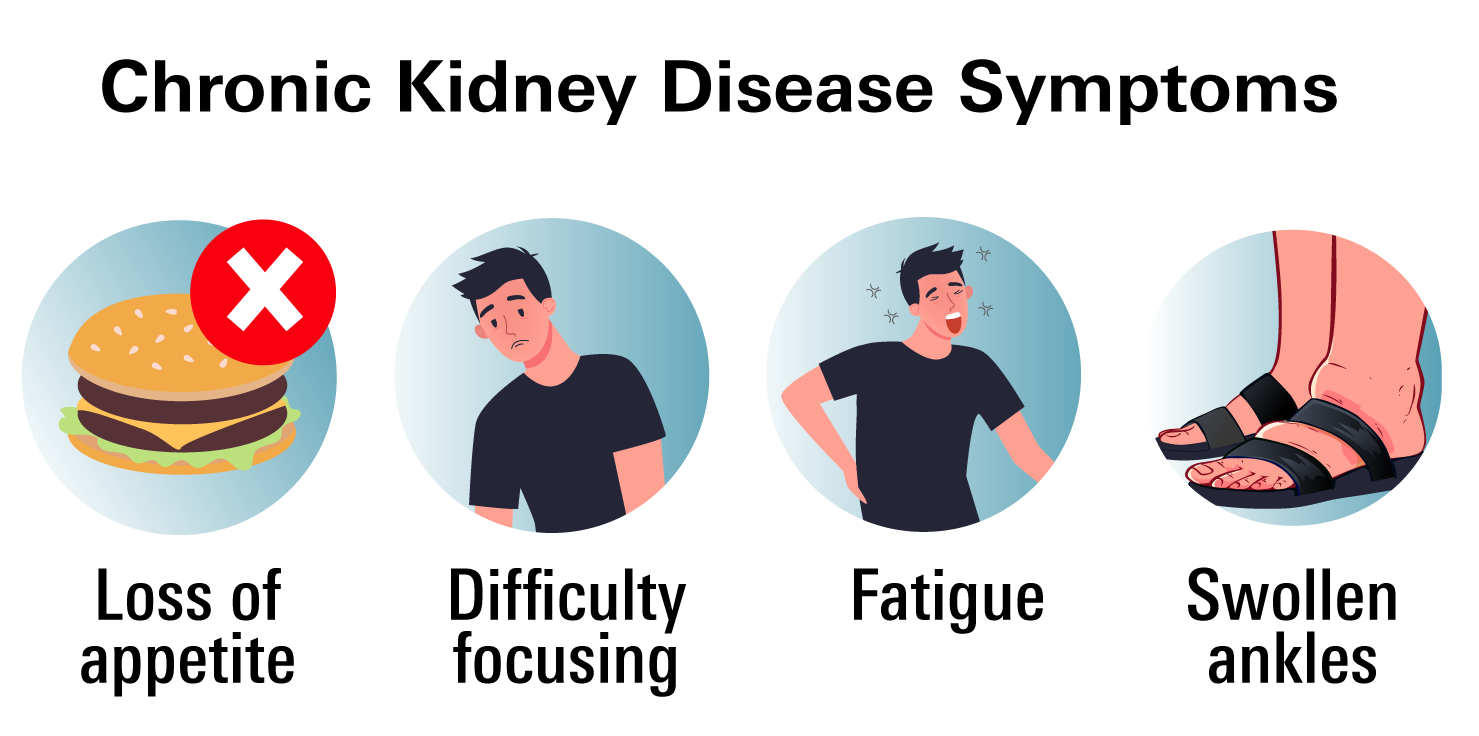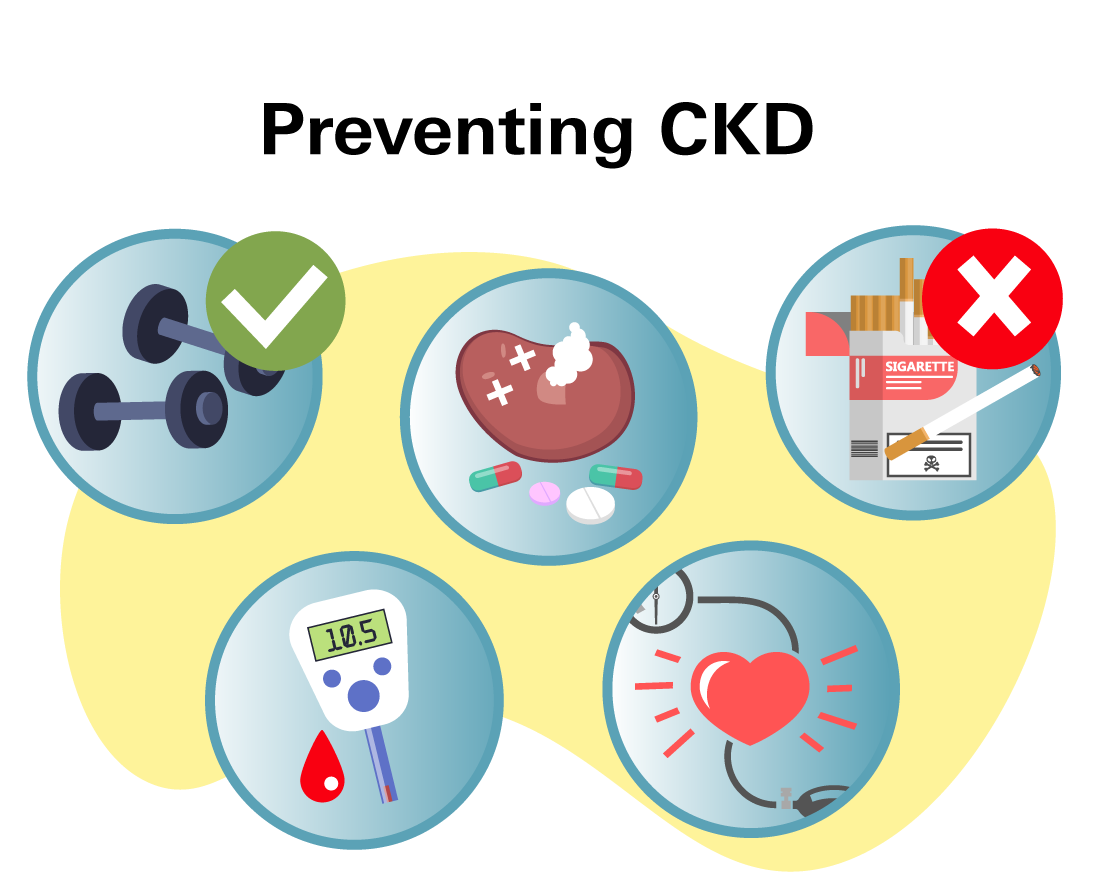Protect Your Kidney
The Importance of Your Kidneys
World Kidney Day, a global campaign aimed at raising awareness on the importance of your kidneys for your overall health, takes place annually on the 2nd Thursday of March. By raising awareness, we hope to educate people on this topic so we can reduce the frequency and impact of kidney disease and its associated health problems on our population.
The kidney’s primary role is to remove toxins and excess water from the blood and excrete it through our urine. These functions play a major role in controlling blood pressure, balancing the minerals in our blood such as sodium and potassium, and help keep our bones healthy. Between 8–10% of the adult population has some form of kidney disease; each year, millions die prematurely due to complications related to chronic kidney disease (CKD).
What is CKD?
After the age of 40, kidney filtration begins to fall by approximately 1% per year; along with natural aging, this is one of the reasons why it is important to start getting your healthcare provider to check your kidney function with every yearly visit. Blood and urine tests conducted by your healthcare provider help monitor the function of your kidneys.
CKD is defined as a progressive loss in kidney function and can increase your risk of premature death from associated cardiovascular diseases such as heart attacks or strokes. Structures within the kidneys called nephrons help filter your blood. If these slowly get damaged, they will not be able to filter your blood properly, resulting in the development of disease. If detected early, CKD is treatable and deterioration of the kidneys can be slowed or stopped, therefore reducing the risk of cardiovascular complications. Unfortunately, early CKD has very few signs or symptoms, meaning that patients can quickly progress to a point where the damage is irreversible.
Deterioration of function below a certain point is known as kidney failure. Kidney failure can affect your whole body, will make you very ill, and if untreated, could be life-threatening. Kidney failure frequently results in the need for regular dialysis treatment or a kidney transplant for continued survival; both of which can be a tremendous health and financial burden for the affected patient.
Causes of CKD
A person can lose up to 90% of their kidney function before experiencing any symptoms of CKD.

Most symptoms do not appear until the more advanced stages and include:
- swollen ankles
- fatigue
- difficulty concentrating
- decreased appetite
- bloody or foamy urine
High blood pressure and diabetes are the most common causes of CKD.
Are you at a high risk for kidney disease?
To know if you are at a higher risk for kidney disease here are some questions to ask yourself:
- Do you have diabetes?
- Do you have high blood pressure?
- Have other people in your family had kidney disease?
- Are you considered overweight?
- Do you smoke?
- Are you over the age of 50?
- Are you of African, Hispanic, Aboriginal or Asian descent?
If you answered yes to any of the questions above, you may benefit from talking to your healthcare provider about testing for kidney disease. Early detection is key to the prevention of these severe diseases.
Treatment
Although there is no cure for CKD, treatments can help slow or halt the progression of the disease and can prevent other conditions from developing. The main treatment is proper diet and medications, but for those who reach end stage renal disease, long term dialysis or a kidney transplant are the only treatment options.
Dialysis is a process where you are connected to a machine that essentially acts as an external kidney. Since your kidney is no longer functioning properly, waste products and excess fluids will start to accumulate in your blood. Your blood is therefore pumped through this machine, which removes any of these excesses that have accumulated. Once the blood has been cleaned it is returned to the body. Dialysis is usually performed 3 times per week and each session takes anywhere between 3 – 5 hours to complete.
A kidney transplant is when a healthy donor organ is put into your body to replace the kidney that is no longer functioning properly. This usually increases your quality of life as your kidney will start performing its job correctly again and the toxins in your body will start to be eliminated effectively. The biggest hurdle that is faced with transplantation is that there is a shortage of organs available for donation. Therefore, many people end up on a wait list for a transplant and will require dialysis until an organ becomes available.
Prevention
There are some ways to reduce your risk of developing kidney disease, though it is still important to get your kidney function tested annually by your healthcare provider.

- Controlling blood pressure: High blood pressure (hypertension) can damage your kidneys which can accelerate CKD development. There are medications that you can take to help keep your blood pressure within a normal range and help prevent other issues from developing. These medications include diuretics, beta-blockers, ACE inhibitors and more!
- Healthier Lifestyle: The health of your kidneys is tightly correlated to your overall health and lifestyle. By maintaining an ideal body weight, reducing your salt intake, eating healthier and drinking lots of fluids, you can help decrease your blood pressure which can in turn decrease your risk of CKD and other conditions associated with it.
- Control your blood sugar: Diabetes is a large contributor to CKD and unfortunately approximately half of the people who have diabetes are unaware. This is why it is important to get your blood sugar levels checked by your healthcare provider annually as it can help with early detection of many diseases.
- Don’t smoke: Smoking actually slows down the blood flow through your body including the blood that goes to the kidneys. This can result in a decrease in function due to less oxygen making it to the kidneys. Smoking also increases your risk of kidney cancer by approximately 50%.
- Don’t take anti-inflammatory/pain-killer medications regularly: Many people do not realize that these types of medications are actually harsh on your kidneys. This includes over-the-counter forms such as ibuprofen (Advil®). Since it is your kidneys that need to excrete these substances, taking them regularly can damage them and over time decrease their function. If you have kidney disease or decreased kidney function, speak with your healthcare provider before using them, as even a few doses can cause great harm to your kidneys.
Data for this blog was informed by the World Kidney Day website: https://www.worldkidneyday.org/